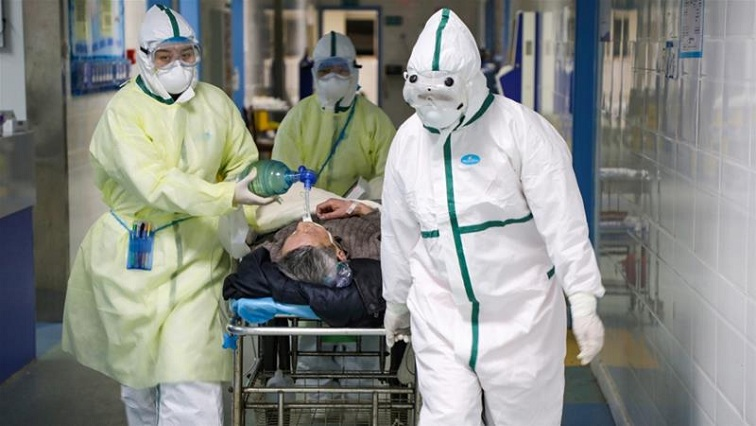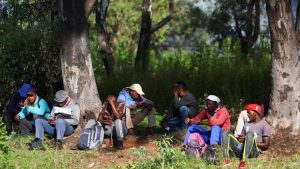As KwaZulu-Natal bears the burden of the country’s deaths from COVID-19, the elderly have emerged as one of the most vulnerable groups. Seven of the 13 deaths have been in the province.
As at today, the total number of confirmed #COVID19 cases is 1749. There is also another death, bringing the total to 13 deaths. It was a male who had stage 4 prostrate cancer at Parklands Hospital. We convey our condolences to the family of the deceased #ZweliMkhize
— Department of Health: COVID-19 (@COVID_19_ZA) April 7, 2020
Five of these people were over 70-years-old.
Durban-based non-profit organisation, The Association for the Aged-(TAFTA) says while they have restricted access and implemented stricter hygiene and social distancing rules, encouraging a spirit of Ubuntu and elderly-led solutions is the key to keeping the older members of society safe.
Mortality remains one of the critical ways of measuring the devastating impact of the coronavirus.
As of Wednesday, April 8, Italy topped the world’s deaths at more than 17 000. The United States registered a death toll of more than 12 000.
China, the epicentre of the virus worldwide, has reported more than 3000 deaths.
South Africa’s current death toll of 13 remains alarming for the thousands of South Africans in lockdown.
In the video below, President Cyril Ramasa says government will assess the impact of the lockdown:
Head of the Department of Infectious Diseases at the University of KwaZulu-Natal Professor Mahomed Yunus Moosa says the dominant number of older South Africans dying from COVID-19, is in line with age-related declines in health.
“So, when people are older, their reserve capacity of the lungs is not as good as it would be for somebody that was young. The lungs are also one of those organs that was damaged by cigarette smoking, inhalation of fumes. So, you would have underlying issues, especially in someone over the age of 70. They would probably have some sort of underlying chronic lung disease. So, you give someone an infection of equal severity to both of those age groups it is logical, sensible that the older person is more likely to have a more serious impact on the lung.”
TAFTA Chief Executive Officer, Femada Shamam, has praised the work of the 150 caregivers and service staff, who chose to stay locked down with TAFTA’s elderly residents, limiting the risk for those in their care.
Shamam says it has been important to include the elderly in finding solutions, to empower them to feel in control of their life.
“They are scared and we have to acknowledge that. Throughout the world stats indicate that older people are the most vulnerable group. It’s not about us keeping you safe but you keeping yourself safe as well. So there’s this sense of community responsibility. Older people have come together to help us. In some of the buildings you’ll find that two or three of the ladies will get together and bake muffins for everyone in the building. They will then see it distributed to people in their rooms not calling everyone to our hall.”
Referring to a recent concern from one of TAFTA’s residents concerning pets, Shamam says it is important to make the elderly feel safe during the lockdown while still allowing them moments of joy.
“And so, the conversation was how can I support you to be okay while also making sure people in the building are okay and we reached a compromise. We found volunteers willing to go feed the cats. So, she was okay because she said to me 15 cats will die if she doesn’t feed them and I understand where she’s coming from. It’s about how can I support you to be well in the building. She’s okay, the cats are okay, our building is okay. So, we’re alright now.”
There are also elderly people who stay at home with family, or alone.
Professor Moosa says the best advice to them for staying safe is no different to what has become government’s mantra of late, simply put, stay at home.
“You cannot get this infection if you are not exposed to it. Ride this out so that the virus will finally disappear and there’s every expectation that it will disappear because the reservoir of the virus are humans and fortunately, the virus clears out from humans if they don’t succumb to it. So, if we wait long enough then you can happily interact with those people once this epidemic is behind us.”
Shamam says putting the elderly at the centre of the solution rather than on the fringes, is driving solution-based living and protection from COVID-19.
The graphic below gives information about coronavirus protective measures :

Loading…






